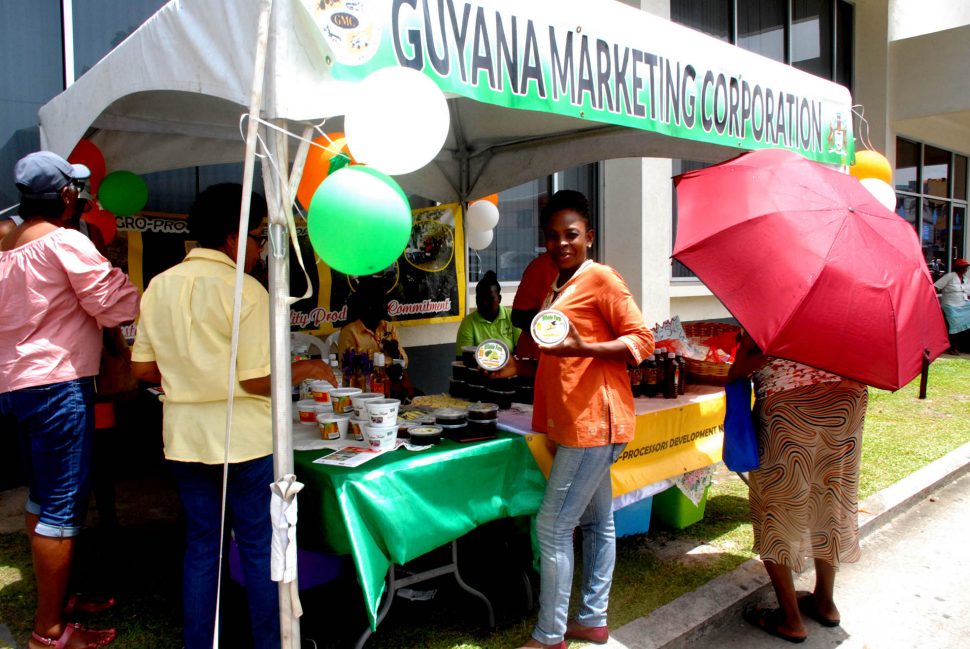While many men would probably be loathe to admit it, the available evidence points to the fact that women have long been at the forefront of the growth and development of the manufacturing sector in Guyana. True, the raw material used in the production of the various sauces, jams, jellies, spices and other condiments are harvested from farms tended mostly by men (though an increasing number of thriving farms, these days, are managed by women). However, the vast majority of the processing and preparation – still mostly in domestic kitchens utilizing non-industrial equipment and under less than convivial conditions – remains the virtually complete domain of women; and if you visit what, these days, is the increasing number of product displays and marketing events across the country you will quickly come to discover that, here again, the vast majority of marketing is done by women.
Over time too, through the various seminars and other training and sensitization, Guyanese women have acquired an enhanced appreciation of the virtues of adding value to their products by upgrading their packaging and labeling. Their own creative skills coupled with their diligence in sourcing appropriate packaging have served to raise the product-presentation bar in the country’s agro-processing sector.
Inevitably, numbered amongst the local agro-processing entities that have realized some measure of domestic and even limited overseas market success are managed exclusively by women. Among the more prominent of these is the Women’s Agro Processors Development Network (WADN), a registered Friendly Society comprising eleven separate women-run agro processing enterprises located in Regions One, Two, Four, Five and Nine.
An affiliate of the Caribbean Network of Rural Women Producers (CANROP) WADN’s primary focus is on empowering their member groups, comprising women who have already made a mark as skilled agro-processors, to take bolder strides on the entrepreneurial stage. It is a focus that recognizes and responds to the fact that the complete empowerment of women means that their skills must extend beyond simply ‘turning out’ products to taking control of the range of disciplines that can transform what invariably begins as domestic kitchen operations designed to subsidize family incomes into serious entrepreneurial enterprises.
Among the groups comprising WADN – Blue Flame Women’s Group; Waini Naturals; Pomeroon Women Agro Processors Association; New Haven Siriki Sands Association; St. Deny’s/Tapakuma Village Council; Kuru Kuru Crops and Livestock Farmers Association; YWCA, West Berbice; Wowetta Women’s Agro Processors Association; Medicine From Trees; Aranaputa Processors Friendly Society and Helping Hands Women’s Producers – they produce scores of products ranging from cosmetics to condiments, each member of the group delivering products manufactured from raw materials common to the environment in which they live.
While the network comprises separate enterprises they are drawn together on account of a collective realization that they can learn from each other. In that context partnership building, building capacity of individual members, creating market linkages both at home and overseas, amplifying advocacy and providing various forms of support for the communities in which the groups are located are their more important individual and collective objectives.
As local agro-processing has evolved the women of WADN have had to learn quickly how to refine their product preparation to keep pace with market demand as well as to develop an appreciation of the competitive advantage associated with continually upgrading packaging and labelling. They have also come to appreciate the benefits that derive from think-ins that bring varied minds together and from seeking and securing the invaluable support that they have received from external organizations like the Inter-American Institute for Cooperation on Agriculture (IICA) (since the 1990’s IICA Specialist Dr. Maxine Parris-Aaron has been providing WADN with technical advice) and the Canadian University Service Overseas. (CUSO)
Never a group to overlook an opportunity to promote its members and their work, WADN, last week, took advantage of the marketing opportunity afforded by a current GMC product promotion initiative outside the Robb and Camp streets Republic Bank, to ‘trot out’ a range of members’ products. Events like the GMC promotional exercise affords WADN the opportunity to have the products of its non-coastal members exposed to coastal markets more regularly than otherwise might have been the case.
Numbered amongst WADN’s more notable achievements are the employment and income-generating opportunities that it has created both for its members and for the farmers who produce the raw materials that they purchase as well as drawing the attention of some of the major local players in the manufacturing sector to their products and in the process attracting technical advice in the area of production as well as invaluable local marketing support.
What, perhaps, is to be most admired about the women of WADN is what appears to be an indomitable spirit, a will to succeed in a sector which, often short of resources, moves along at a sedate pace, testing the patience of the modest investors seeking to grow. Sometimes you get to thinking that women like those who comprise WADN, on account of the example that they provide, deserve far more official attention and support than they receive.






